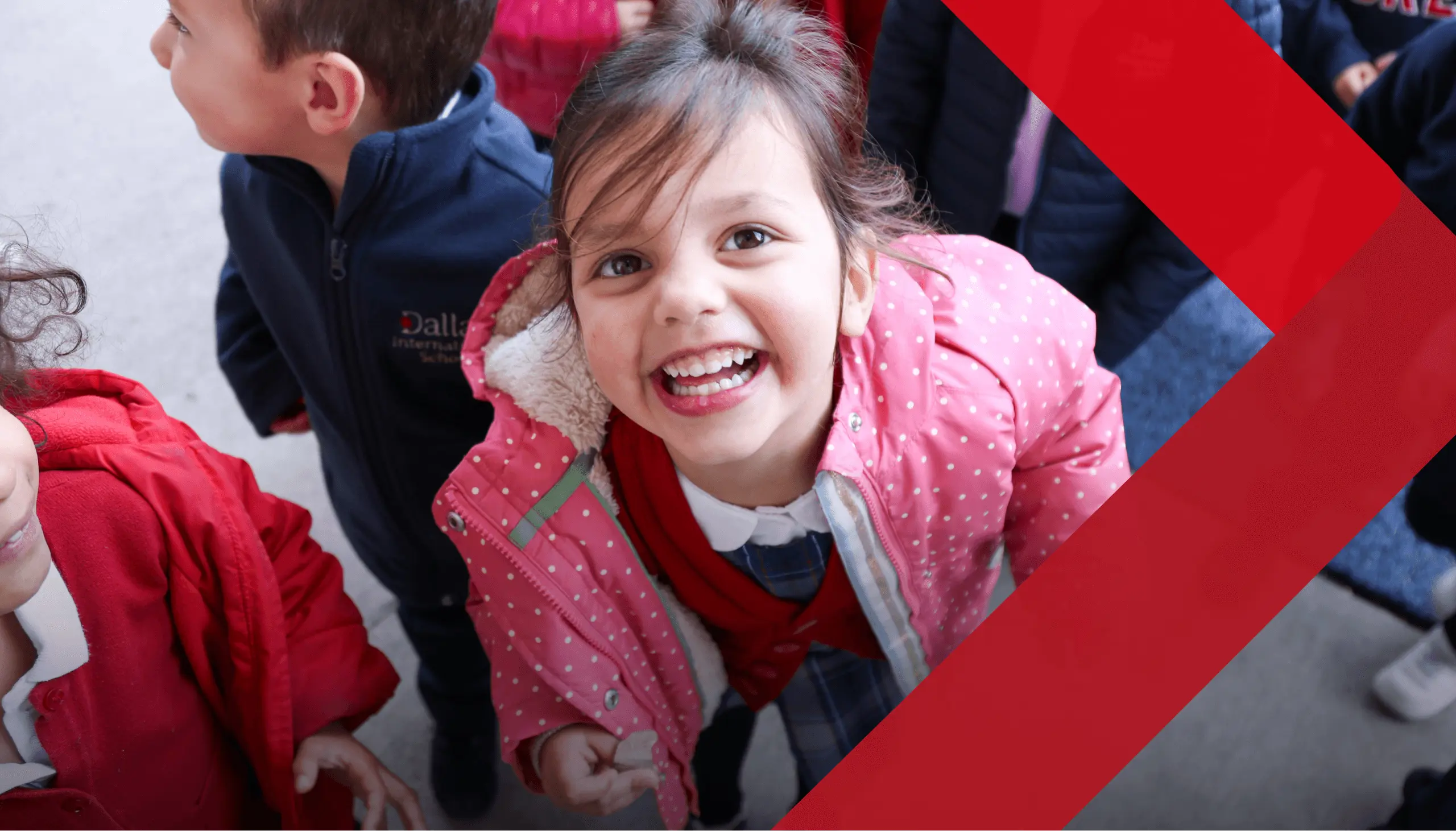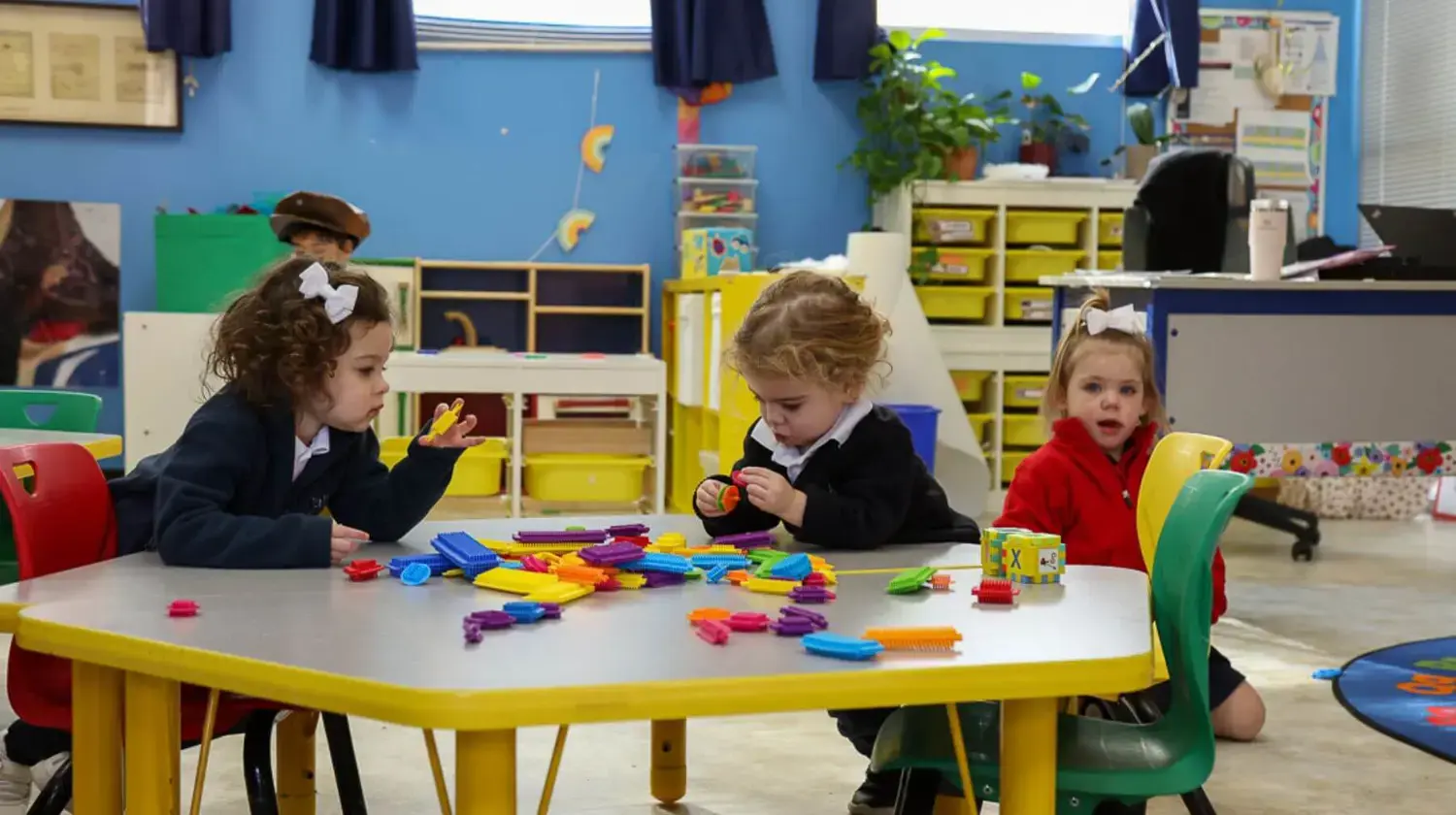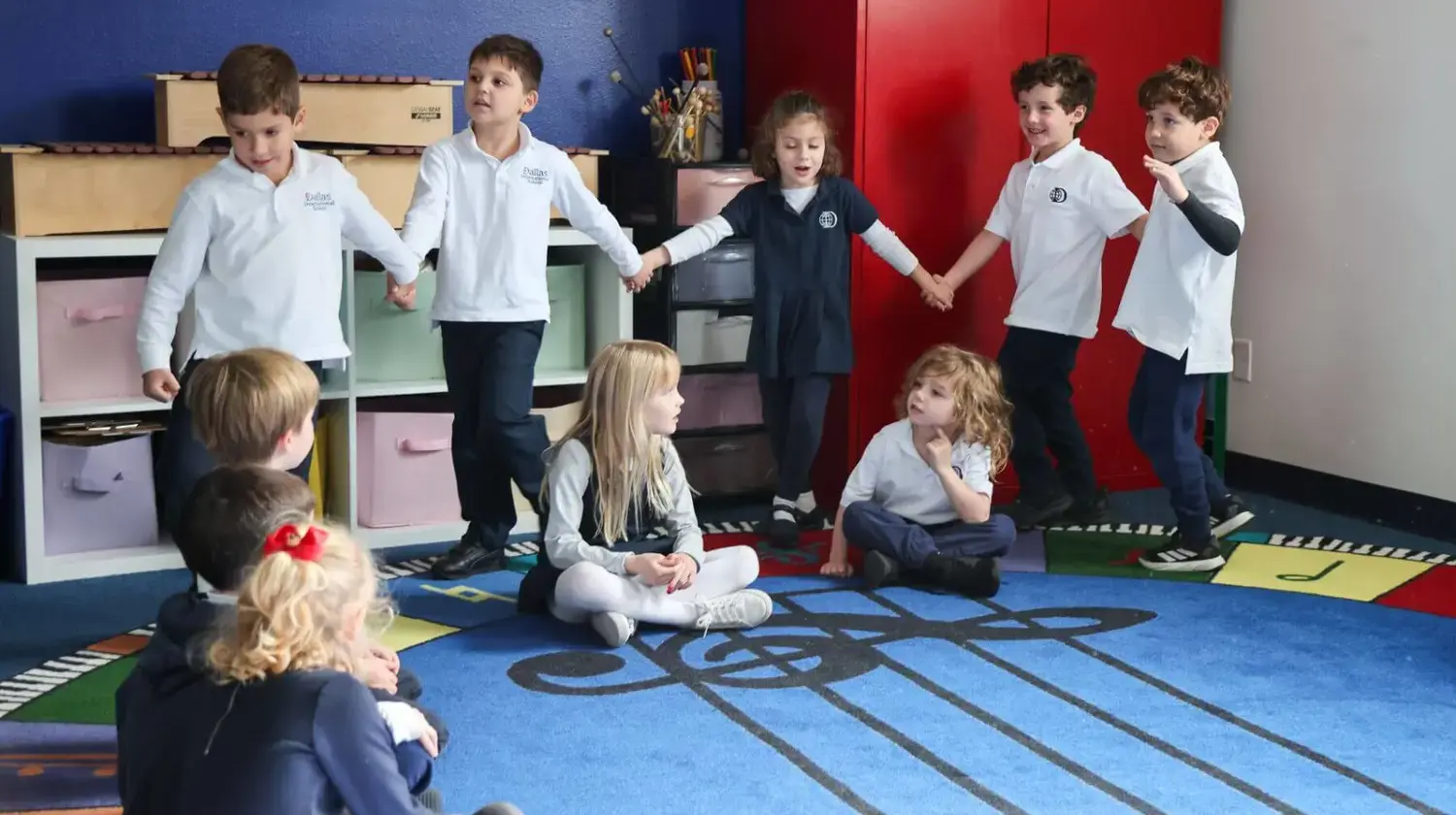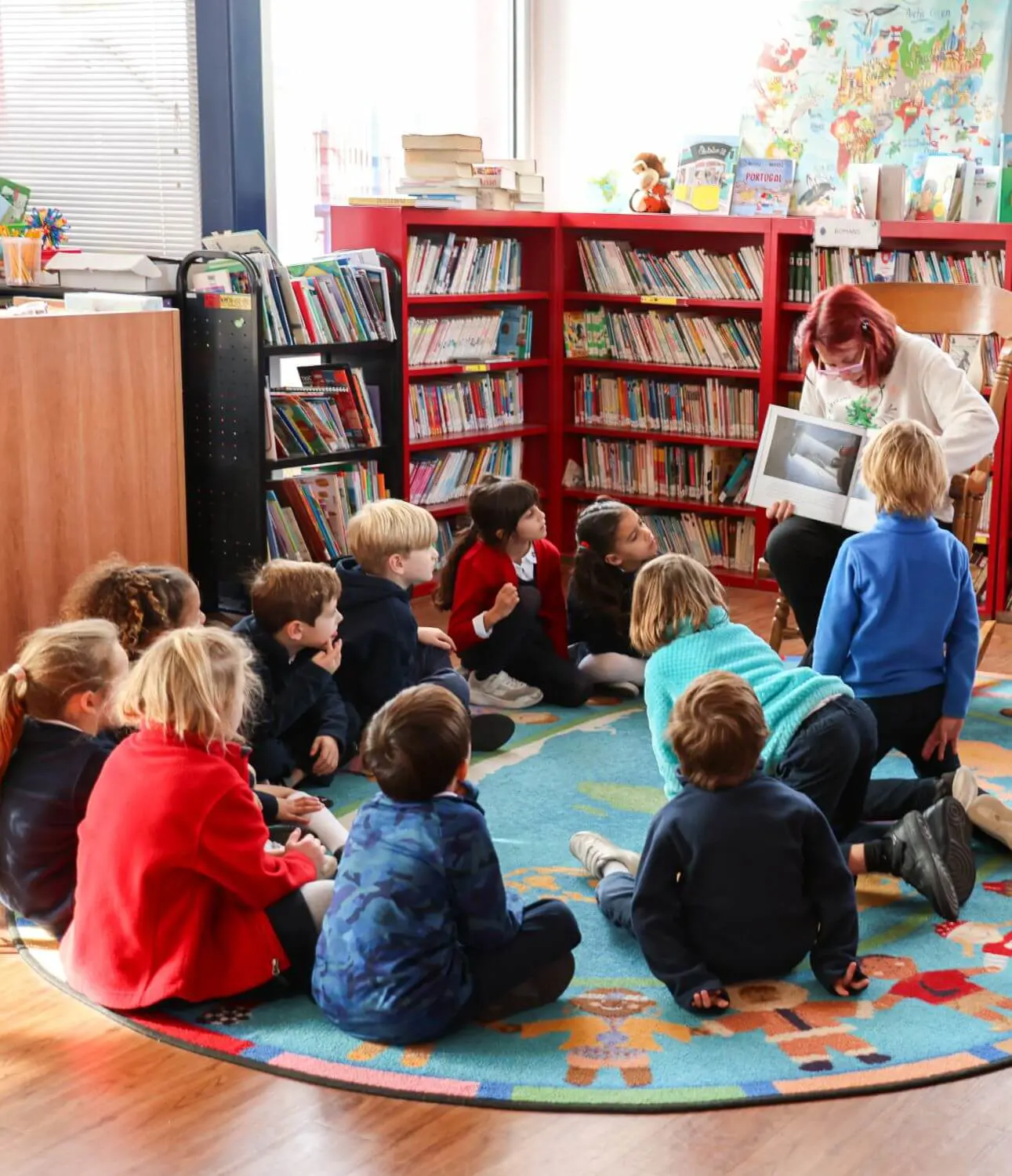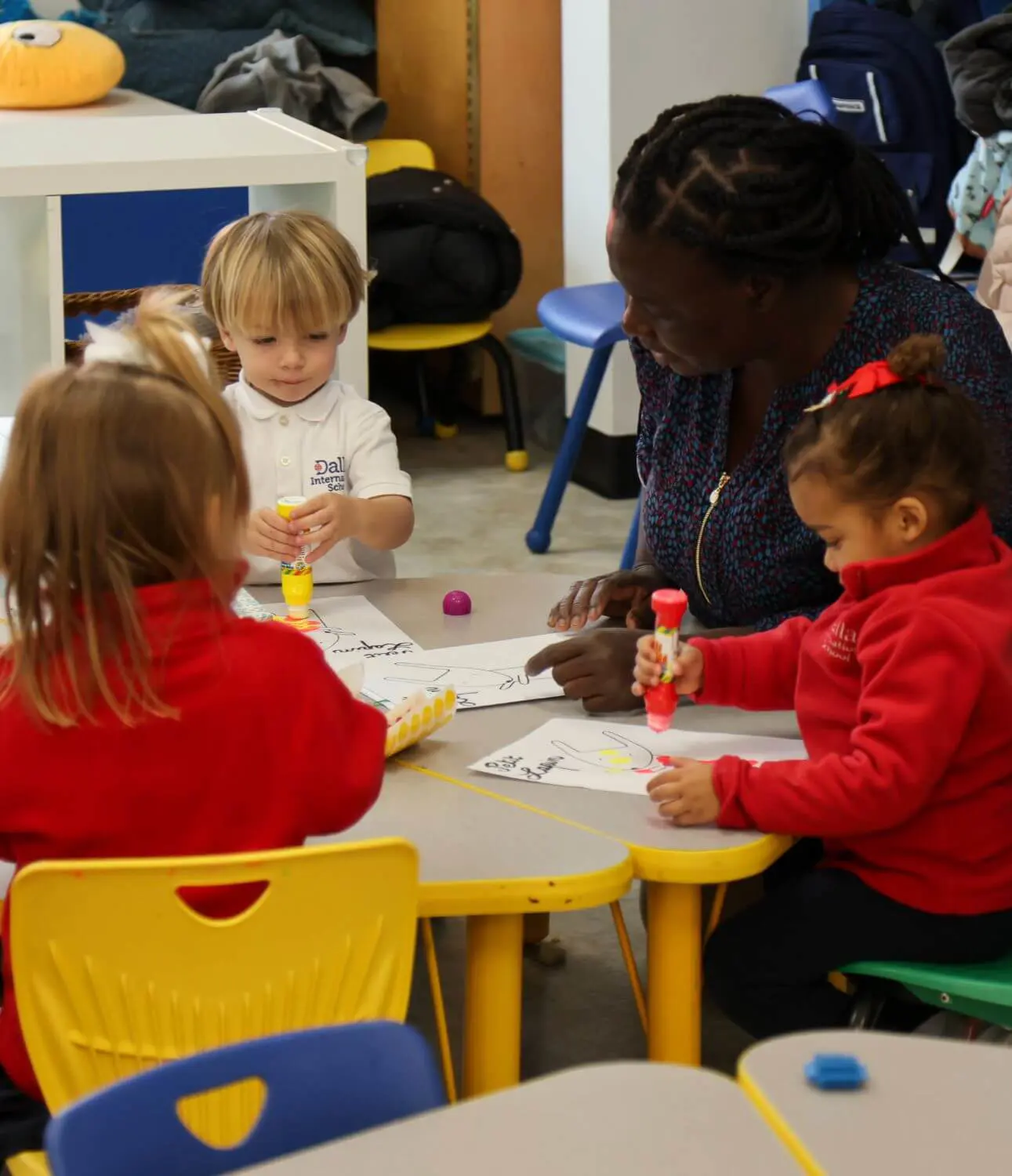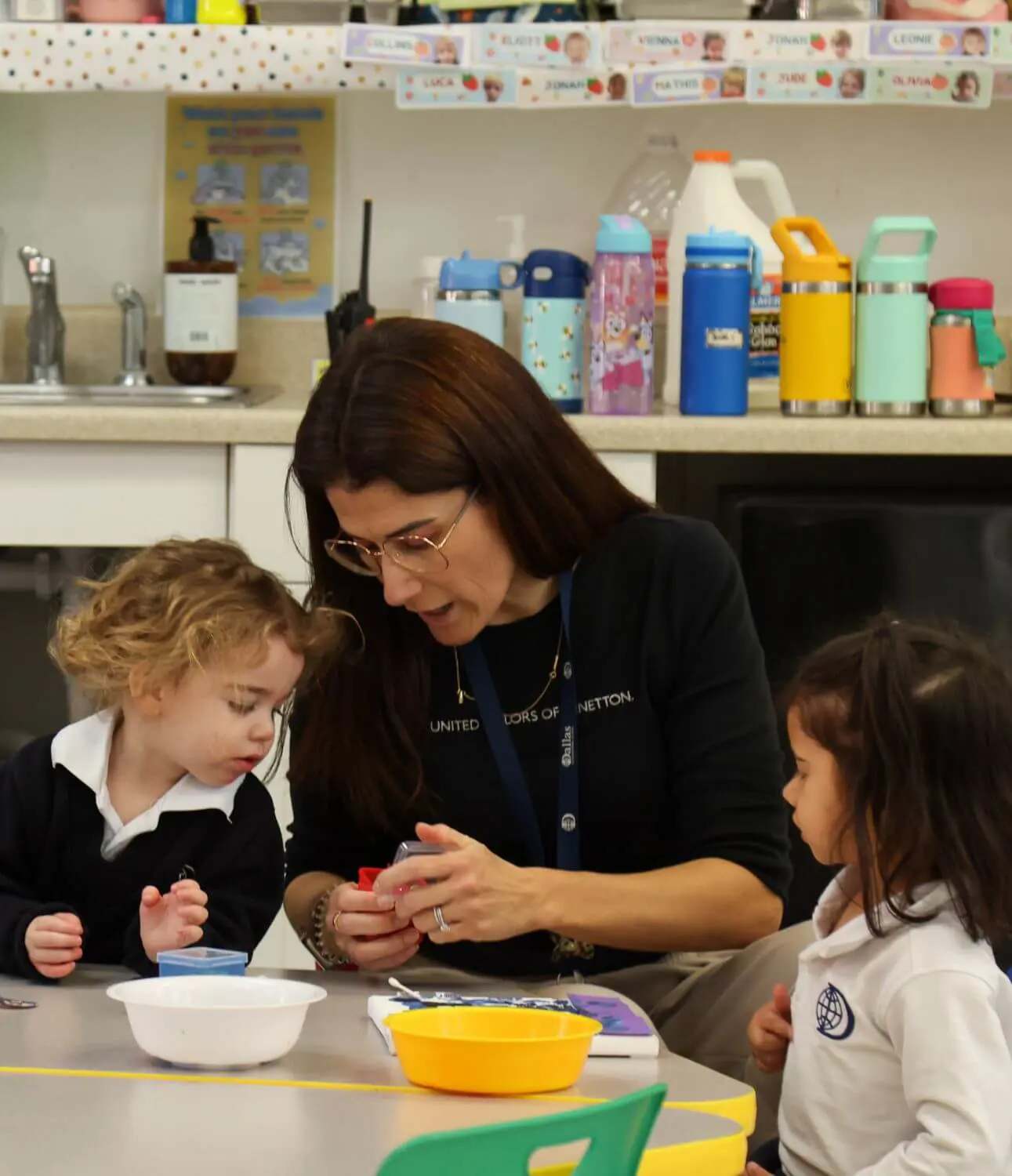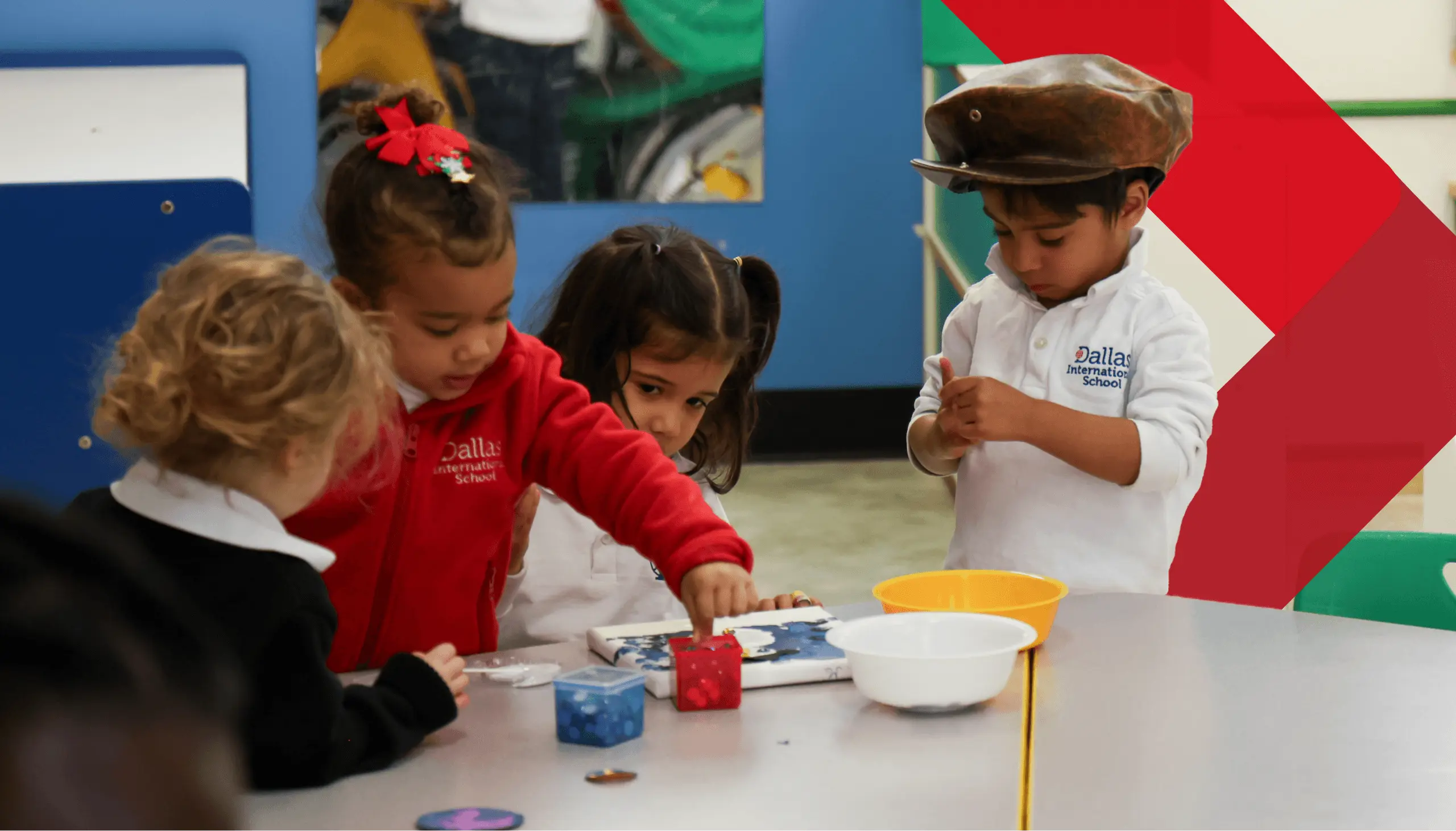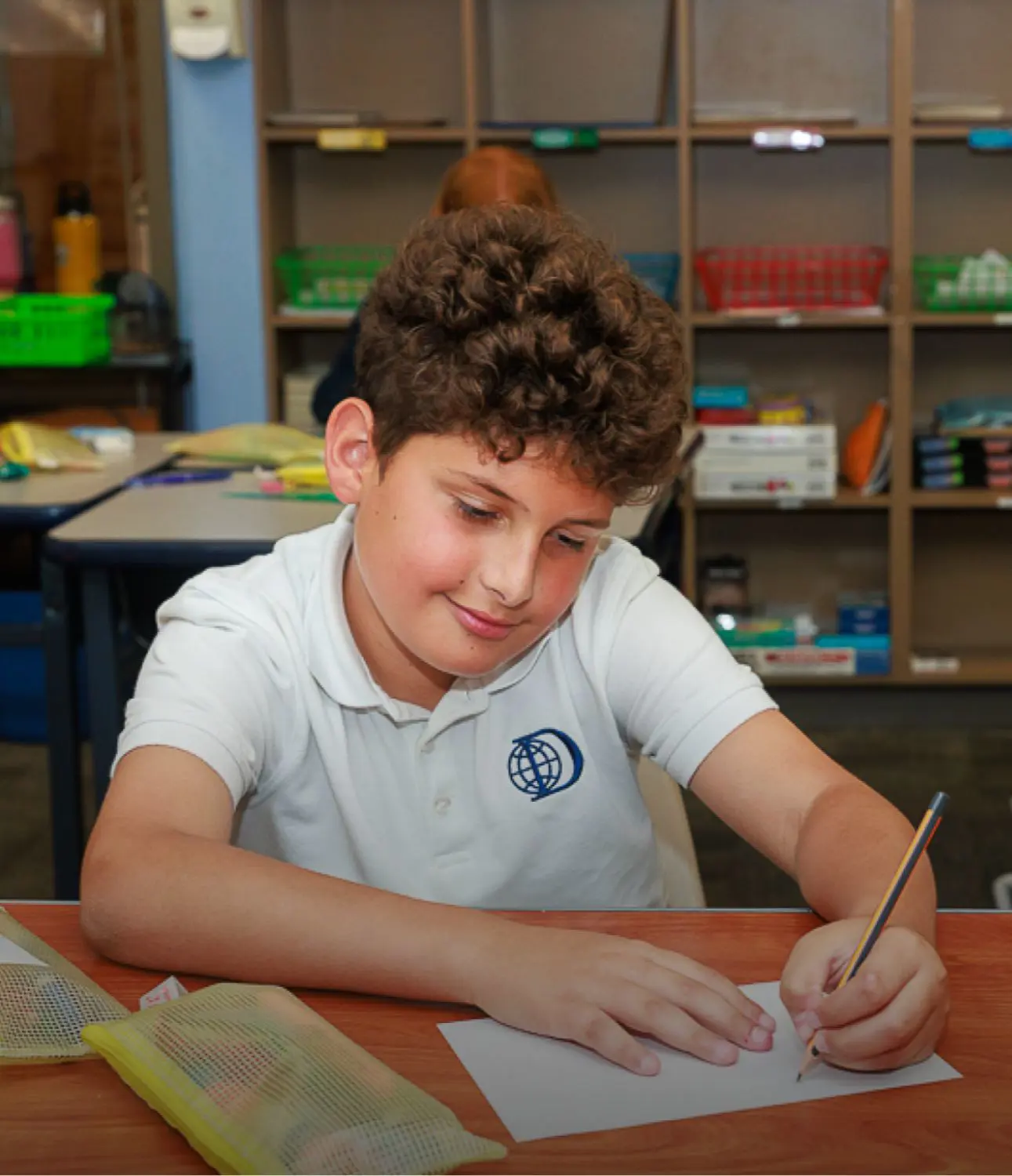Early Childhood
Dallas International School’s Early Childhood program focuses on personal, social, emotional, and academic development at a critical age in a child’s development–namely, ages two through five.
Dallas International School is home to the only early childhood program in north Texas that is accredited both regionally
(Independent Schools Association of the Southwest) and internationally (Ministry of French National Education).
Both accrediting bodies require DIS to meet high standards that ensure a safe, engaging, and rigorous environment through which children can learn and grow. In order to ensure ongoing compliance with these standards, DIS is required to file annual reports and host regular visits from both agencies.
